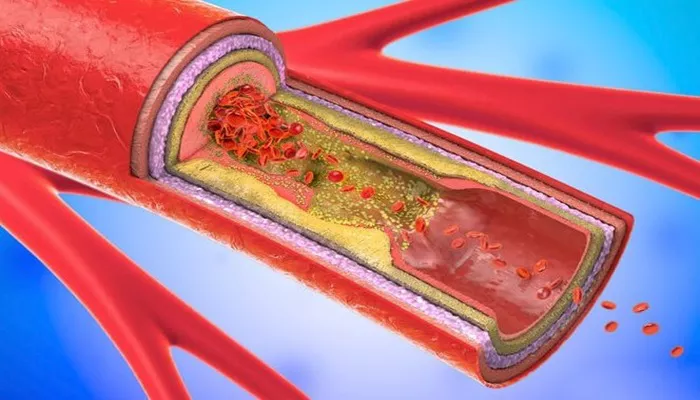Artery clogging, or atherosclerosis, is a critical concern for heart health. It occurs when fatty deposits, cholesterol, and other substances build up in the arteries, narrowing and hardening them. This can lead to severe cardiovascular conditions, including heart attacks, strokes, and peripheral artery disease. Preventing artery clogging is crucial for maintaining cardiovascular health and overall well-being. This article will explore various strategies to prevent artery clogging, focusing on diet, exercise, lifestyle changes, and medical management.
What Is Artery Clogging
Arteries are blood vessels that carry oxygen-rich blood from the heart to the rest of the body. When arteries become clogged, it impedes blood flow and can lead to serious health issues. The process of artery clogging begins with the buildup of atherosclerotic plaques, which are composed of fat, cholesterol, and other substances. Over time, these plaques harden and narrow the arteries, reducing blood flow and increasing the risk of cardiovascular events.
Dietary Changes to Prevent Artery Clogging
One of the most effective ways to prevent artery clogging is through dietary modifications. Here are key dietary changes that can help keep your arteries healthy:
1. Emphasize Heart-Healthy Foods
Fruits and Vegetables: These are rich in vitamins, minerals, and antioxidants, which help reduce inflammation and oxidative stress.
Aim for a variety of colorful fruits and vegetables to get a broad range of nutrients.
Whole Grains: Foods such as oatmeal, brown rice, and whole wheat bread contain fiber that helps lower cholesterol levels and maintain arterial health.
Lean Proteins: Opt for sources like fish, poultry, and plant-based proteins. Fish, particularly fatty fish like salmon and mackerel, is high in omega-3 fatty acids that can reduce inflammation and improve heart health.
SEE ALSO: How Long Can You Live with 45% Heart Function?
2. Reduce Saturated and Trans Fats
Limit Red Meat: High consumption of red meat can increase cholesterol levels. Choose lean cuts and limit your intake to reduce saturated fat.
Avoid Processed Foods: Many processed foods contain trans fats, which are particularly harmful to artery health. Check food labels for partially hydrogenated oils and avoid them.
3. Incorporate Healthy Fats
Monounsaturated and Polyunsaturated Fats: These fats, found in olive oil, avocados, nuts, and seeds, can help lower bad cholesterol levels and reduce inflammation.
Omega-3 Fatty Acids: As mentioned, omega-3s are beneficial for heart health. Consider incorporating flaxseeds, chia seeds, and walnuts into your diet.
Exercise And Physical Activity
Regular physical activity is essential for maintaining cardiovascular health and preventing artery clogging. Here’s how exercise contributes to arterial health:
1. Improve Circulation
Exercise helps improve blood circulation, which can reduce the risk of plaque buildup in the arteries. Aim for at least 150 minutes of moderate-intensity aerobic activity or 75 minutes of vigorous activity each week.
2. Maintain a Healthy Weight
Physical activity helps regulate weight, reducing the risk of obesity-related complications such as high blood pressure and high cholesterol. Maintaining a healthy weight is crucial for preventing artery clogging.
3. Lower Blood Pressure and Cholesterol Levels
Regular exercise helps lower blood pressure and improve cholesterol levels, both of which are important for maintaining healthy arteries. Activities such as walking, swimming, and cycling can be particularly beneficial.
Lifestyle Changes for Heart Health
In addition to diet and exercise, several lifestyle changes can help prevent artery clogging:
1. Quit Smoking
Smoking is a major risk factor for atherosclerosis. The chemicals in tobacco damage the lining of the arteries, leading to plaque buildup. Quitting smoking improves overall cardiovascular health and reduces the risk of artery clogging.
2. Limit Alcohol Consumption
Excessive alcohol intake can raise blood pressure and contribute to weight gain. If you choose to drink, do so in moderation—up to one drink per day for women and two drinks per day for men.
3. Manage Stress
Chronic stress can negatively impact heart health. Practice stress-reducing techniques such as mindfulness, meditation, and deep breathing exercises to manage stress levels and support cardiovascular health.
Regular Health Screenings And Medical Management
Monitoring your health and managing underlying conditions is crucial for preventing artery clogging. Here’s how to stay on top of your health:
1. Monitor Blood Pressure
High blood pressure is a significant risk factor for atherosclerosis. Regularly check your blood pressure and work with your healthcare provider to keep it within a healthy range.
2. Check Cholesterol Levels
Elevated cholesterol levels contribute to plaque buildup in the arteries. Have your cholesterol levels checked regularly and follow your doctor’s recommendations for managing them.
3. Manage Diabetes
If you have diabetes, managing your blood sugar levels is essential for preventing artery damage. Follow your healthcare provider’s advice and take prescribed medications as directed.
4. Consider Medication
In some cases, medication may be necessary to manage risk factors such as high cholesterol or high blood pressure. Work with your healthcare provider to determine the best treatment plan for you.
Conclusion
Preventing artery clogging involves a multifaceted approach that includes dietary changes, regular physical activity, lifestyle modifications, and medical management. By adopting heart-healthy habits and staying vigilant about your health, you can significantly reduce your risk of atherosclerosis and promote overall cardiovascular well-being. Remember, maintaining a healthy lifestyle is a lifelong commitment that pays off in better heart health and a higher quality of life.

